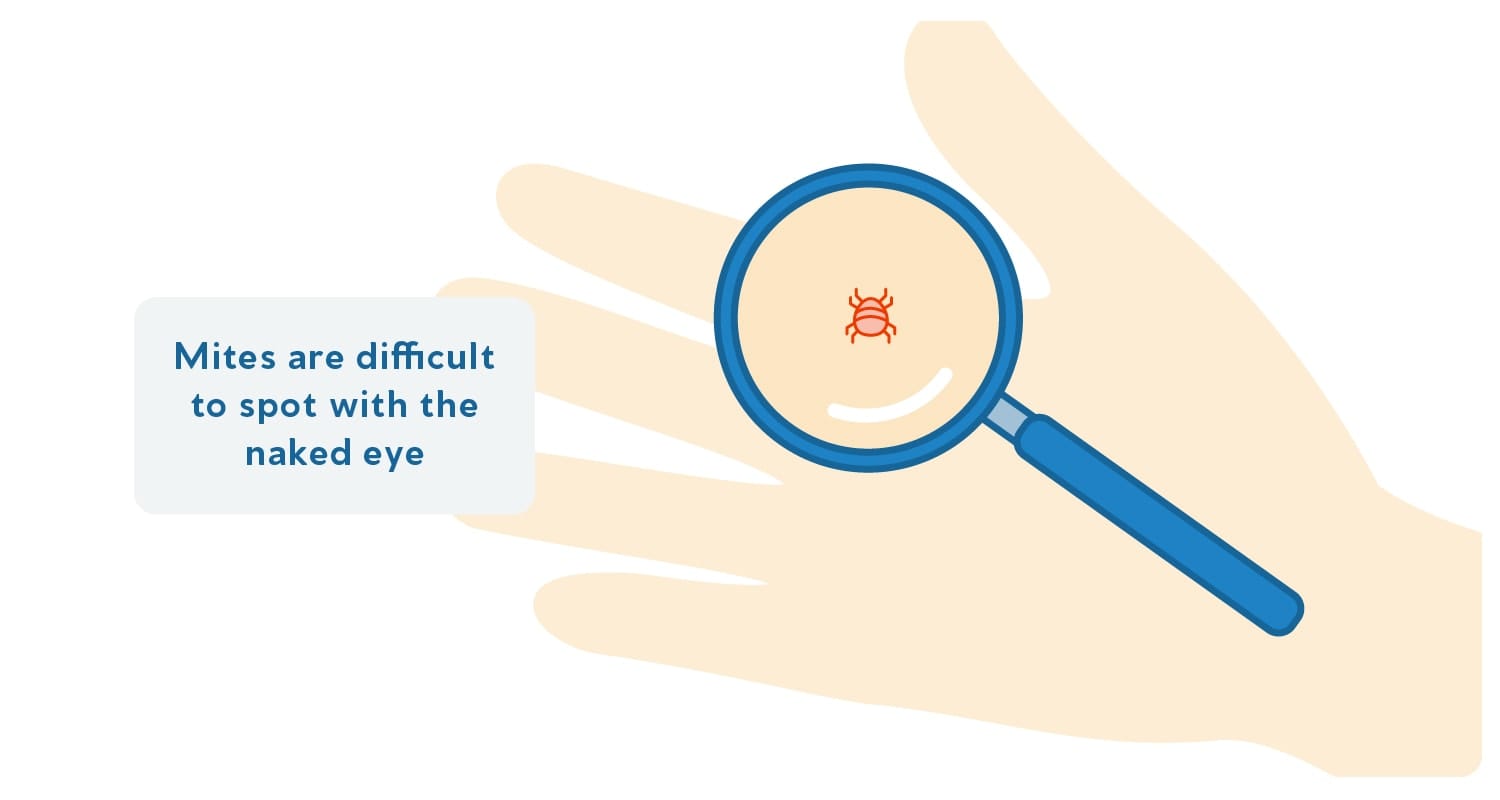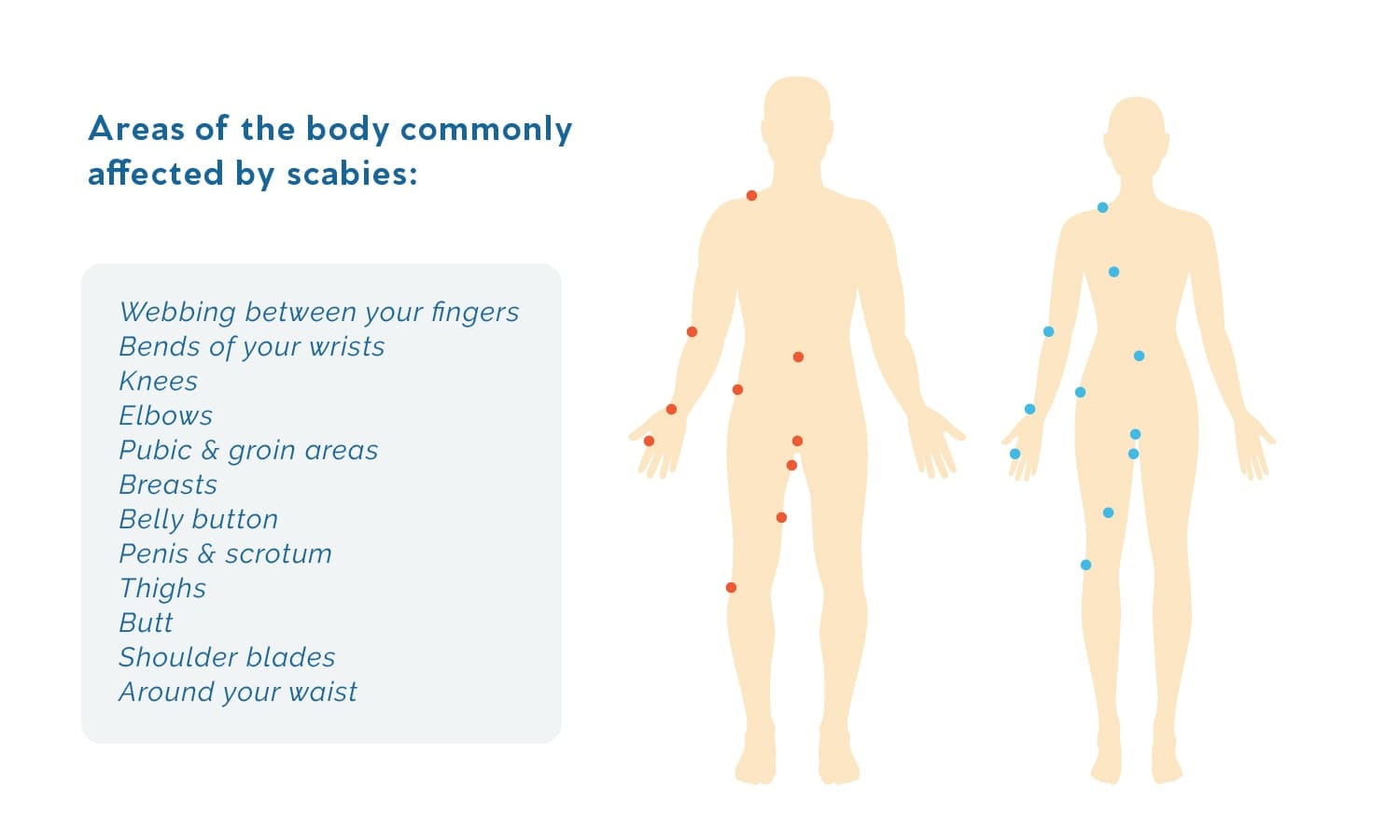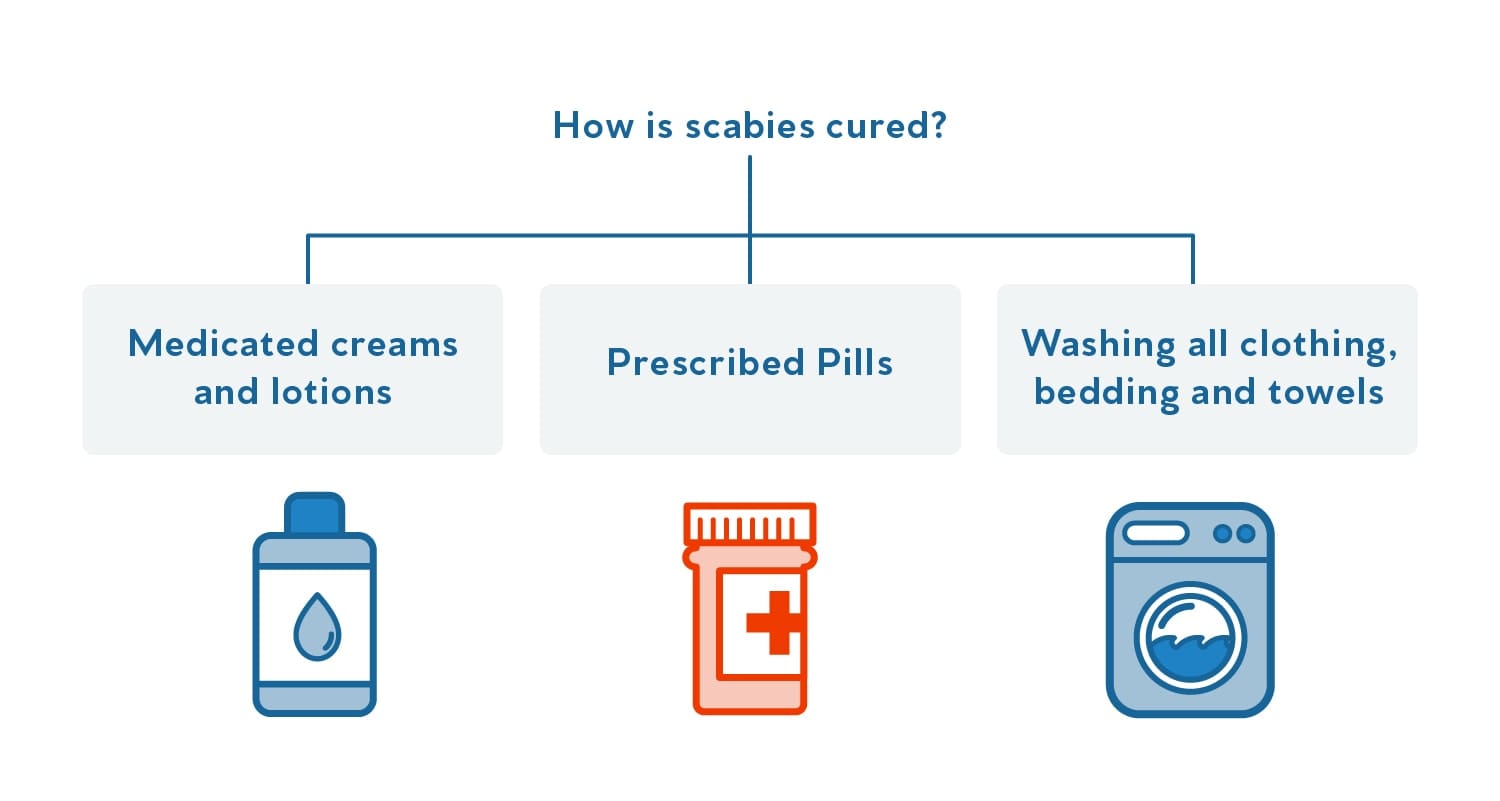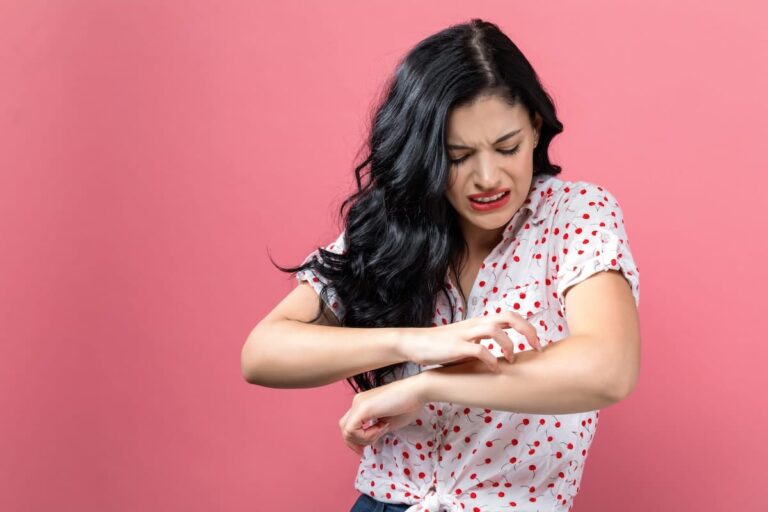Is scabies an STD? In short, no. This contagious skin condition is usually transmitted through non-sexual skin-to-skin contact. However, it can technically be considered a sexually transmitted disease or infection because it is often spread through sexual and other intimate contact.
What is scabies?
Scabies is a highly contagious skin condition that is common worldwide. It is estimated that 300 million cases occur around the world every year. Scabies is caused by small insect-like parasites called scabies mites. These parasites infect the top layer of your skin, causing irritation, rashes, and itchy skin. Scabies mites burrow into the top layer of your skin and lay eggs, which hatch more mites. The mites are very small, making them difficult to see with the naked eye.
Scabies can be uncomfortable, but is usually not dangerous and can be cured with medication. Typically, scabies is treated with pills or medicated creams or lotions that kill the mites and eggs. The treatment is only available by prescription, so you will need to consult a doctor for a diagnosis and prescribed treatment.

What are the symptoms of scabies?
Scabies usually causes symptoms related to irritation from the mites. These symptoms include an itchy feeling that is often worse at night and a rash with pimple-like bumps, small blisters, or scales. You may also notice small, raised, crooked lines on your skin, caused by the scabies mites that burrow beneath the skin’s surface.
The symptoms of scabies typically develop three to six weeks after you are first infected. If you have had scabies before and become reinfected, symptoms may begin within a few days.
Areas of the body commonly affected by a scabies infection include the ligaments between your fingers; the bends of your wrists, knees, or elbows; the pubic and groin area; breasts; belly button; penis and scrotum; thighs and buttocks; shoulder blades and around your waist. Symptoms can sometimes come and go, but the only way to cure the infection is to get treatment. You can still spread scabies to other people even if you are not currently experiencing any symptoms. In addition, the symptoms of scabies can sometimes resemble those of the herpes simplex virus. Therefore, it is advised to have a herpes test done to rule out any other possible infection.

How do you contract scabies?
Scabies is spread through direct skin-to-skin contact. It is clear that most sexual situations involve skin-to-skin contact, meaning that scabies can easily be transmitted through sexual acts. However, scabies is not transmitted exclusively in a sexual context, like some other STDs. You can easily pass scabies to someone else in your home, or contract it from someone else in your home. It is a common infection in crowded places where people have a lot of close skin-to-skin contact or where large groups of people gather, such as in nursing homes, hospitals, classrooms, daycare centers, dormitories, locker rooms and prisons. Although less common, it is possible to contract scabies by sharing clothes, towels, or bedding with an infected person. For sexually active adults, sexual contact is the most common form of transmission.
Scabies is more commonly spread by prolonged skin-to-skin contact, so you’re unlikely to get scabies from quick skin contact, such as bumping into someone, shaking someone’s hand, or giving someone a hug. You can’t get scabies from a toilet seat either.
How do I know if I have scabies?
If you are experiencing symptoms of scabies, the only way to know for sure what is causing those symptoms is to be examined by a doctor or nurse. If you have symptoms of scabies or have recently been in close contact with someone who has scabies, you should get tested. Because scabies is easy to cure, there is no reason to prolong the irritation. Scabies does not go away on its own. If you experience symptoms, you should see a doctor as soon as possible.
How is scabies treated?
If you are diagnosed with scabies, your doctor should prescribe treatment. Treatment may consist of pills or medicated creams and lotions. You can also use over-the-counter treatments to reduce the severity of your symptoms, including anti-itch creams and lotions, but these treatments will not cure scabies. You should consult your doctor before taking additional medications.
It is also important that during treatment you wash all clothing, bedding and towels that you used during the scabies disease. It is also a good idea to vacuum carpets and furniture.
While you are being treated for scabies, avoid any activity that could cause a partner, loved one, roommate, or anyone else in close contact with you to contract scabies. Avoid sexual intercourse and other forms of intimate contact until you have healed.
After scabies treatment, it is normal to still itch for a few weeks afterwards. However, if the itching lasts longer or other symptoms emerge, you should consult a doctor as you may need to undergo further treatment.

How can I prevent getting scabies?
Unfortunately, condoms, dental dams, or other physical barriers will not reduce the risk of scabies as they do with other STDs. The only preventative measure that will protect you from scabies is to avoid intimate contact with someone who has scabies. You should also avoid sharing clothes, bedding or towels with anyone who is infected or undergoing treatment.

